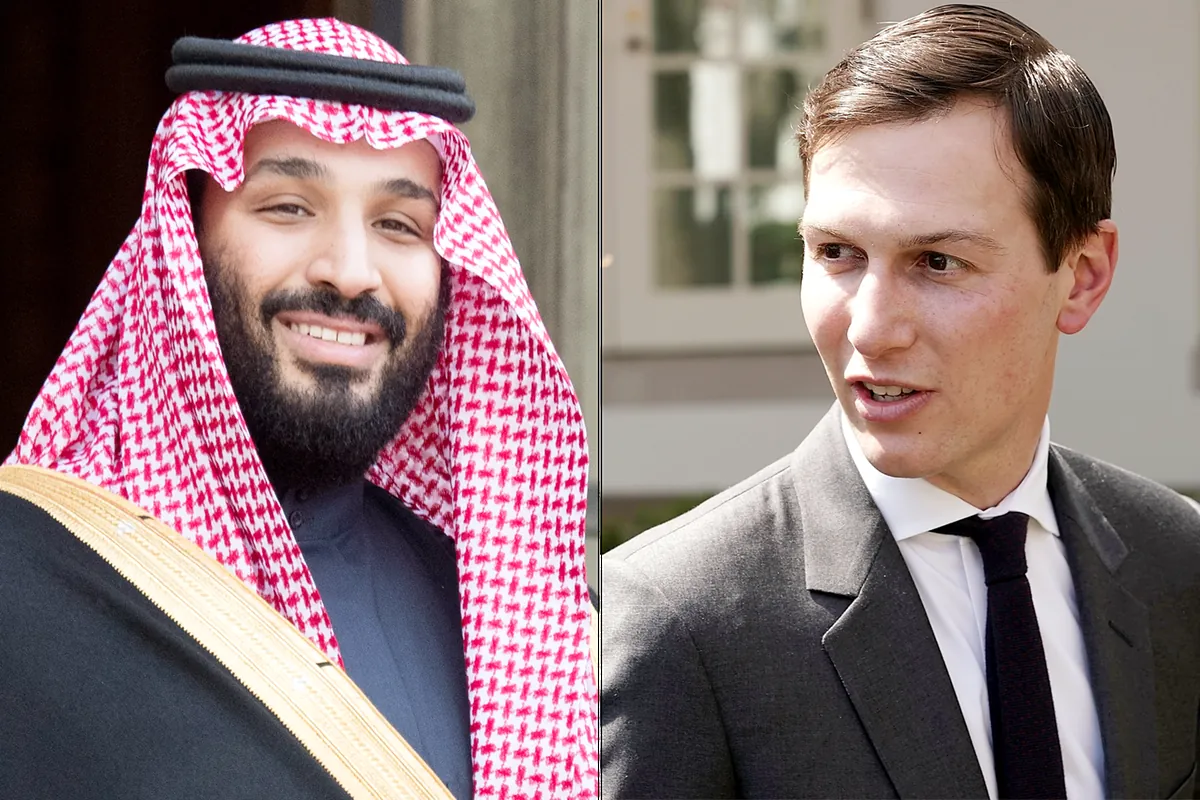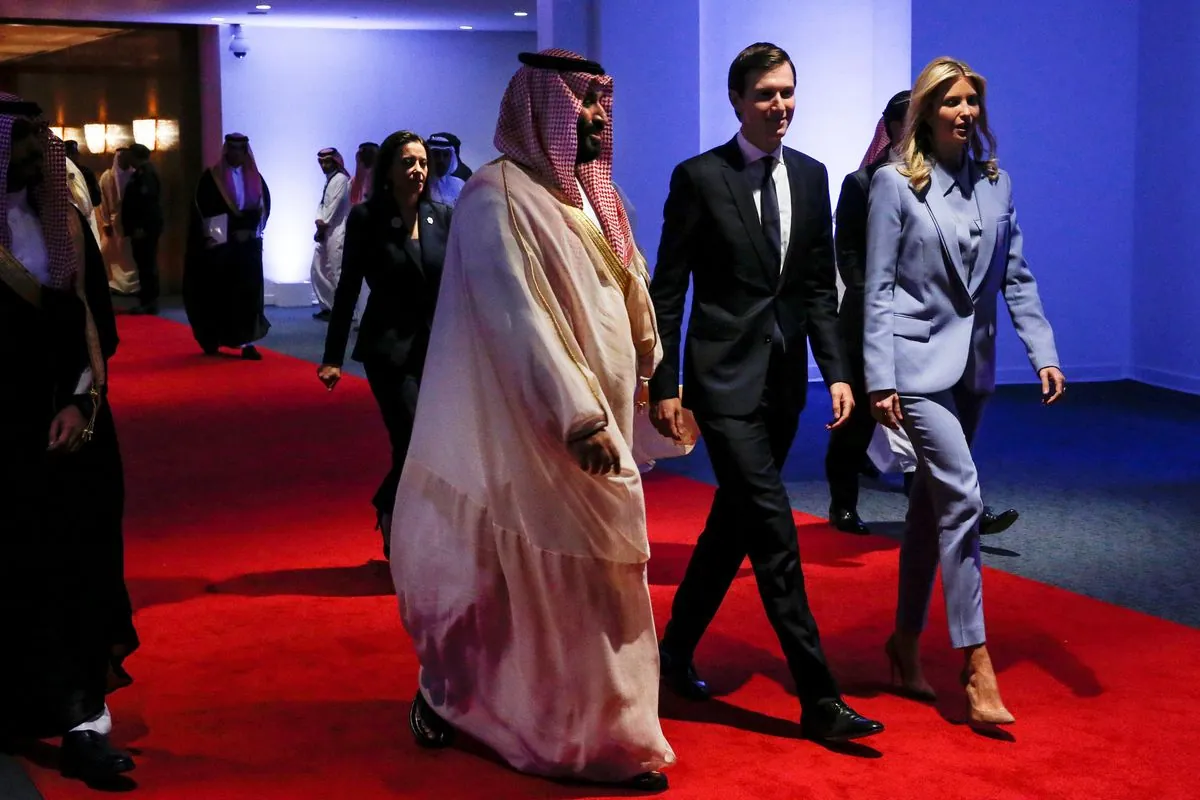Kushner's Post-White House Talks with Saudi Prince Raise Eyebrows
Jared Kushner's discussions with Saudi Crown Prince on US-Israel relations after leaving office spark controversy. Concerns arise over potential conflicts of interest due to Saudi investments in Kushner's fund.

Jared Kushner, former senior advisor to President Donald Trump, has engaged in multiple conversations with Crown Prince Mohammed bin Salman of Saudi Arabia regarding US-Saudi diplomatic negotiations involving Israel since departing the White House, according to a source familiar with the discussions. These talks, which occurred at an unspecified time, included deliberations on normalizing relations between Israel and Saudi Arabia, a key diplomatic objective for both the Biden and Trump administrations.
Kushner, now 43, has maintained a close relationship with Saudi Arabia, which has reportedly invested $2 billion in his private equity fund, Affinity Partners, established in 2021 after his tenure in the White House. This financial connection has raised concerns among ethics experts and lawmakers from both parties about potential conflicts of interest.
The ongoing discussions highlight the significance that both Republicans and Democrats place on the increasingly volatile Middle East situation, especially in light of the upcoming US presidential election on November 5, 2024. These talks also provide insight into how a potential second Trump administration might approach the crisis in the region.

Senator Ron Wyden, chair of the Senate Finance Committee since 2014, expressed his concerns in a letter to Affinity on September 24, 2023, stating that Saudi Arabia's investments in Kushner's fund raise "obvious conflicts of interest concerns." However, Affinity and Kushner have denied any impropriety, asserting that critics do not understand the realities of private equity.
The diplomatic landscape has shifted since these discussions began. On September 18, 2023, Crown Prince Mohammed bin Salman stated that Saudi Arabia would not recognize Israel without the creation of a Palestinian state, potentially complicating future negotiations. This stance represents a change from earlier reports suggesting Saudi Arabia might accept a less binding commitment from Israel.
The Biden administration has offered Saudi Arabia security guarantees, assistance with a civilian nuclear program, and renewed efforts towards Palestinian statehood to encourage recognition of Israel. Such an agreement could significantly reshape Middle Eastern geopolitics by uniting long-time adversaries and strengthening ties between the world's largest oil exporter and Washington.
However, the recent conflict in Gaza, which likely began on October 7, 2023, has cast uncertainty over these negotiations. The war and resulting humanitarian crisis have bolstered Arab and Muslim support for Palestinians, making it challenging for Riyadh to discuss recognizing Israel without addressing Palestinian aspirations.
"What blessing such a peace with Saudi Arabia would bring."
The potential involvement of Kushner in future diplomatic talks, should Trump win the 2024 election, raises significant ethical questions. Ethics experts argue that conducting government-level negotiations with a major financial investor while serving as a private citizen could pose a substantial conflict of interest.
As the situation continues to evolve, the international community watches closely to see how these complex diplomatic and ethical issues will unfold in the lead-up to the 2024 US presidential election and beyond.


































